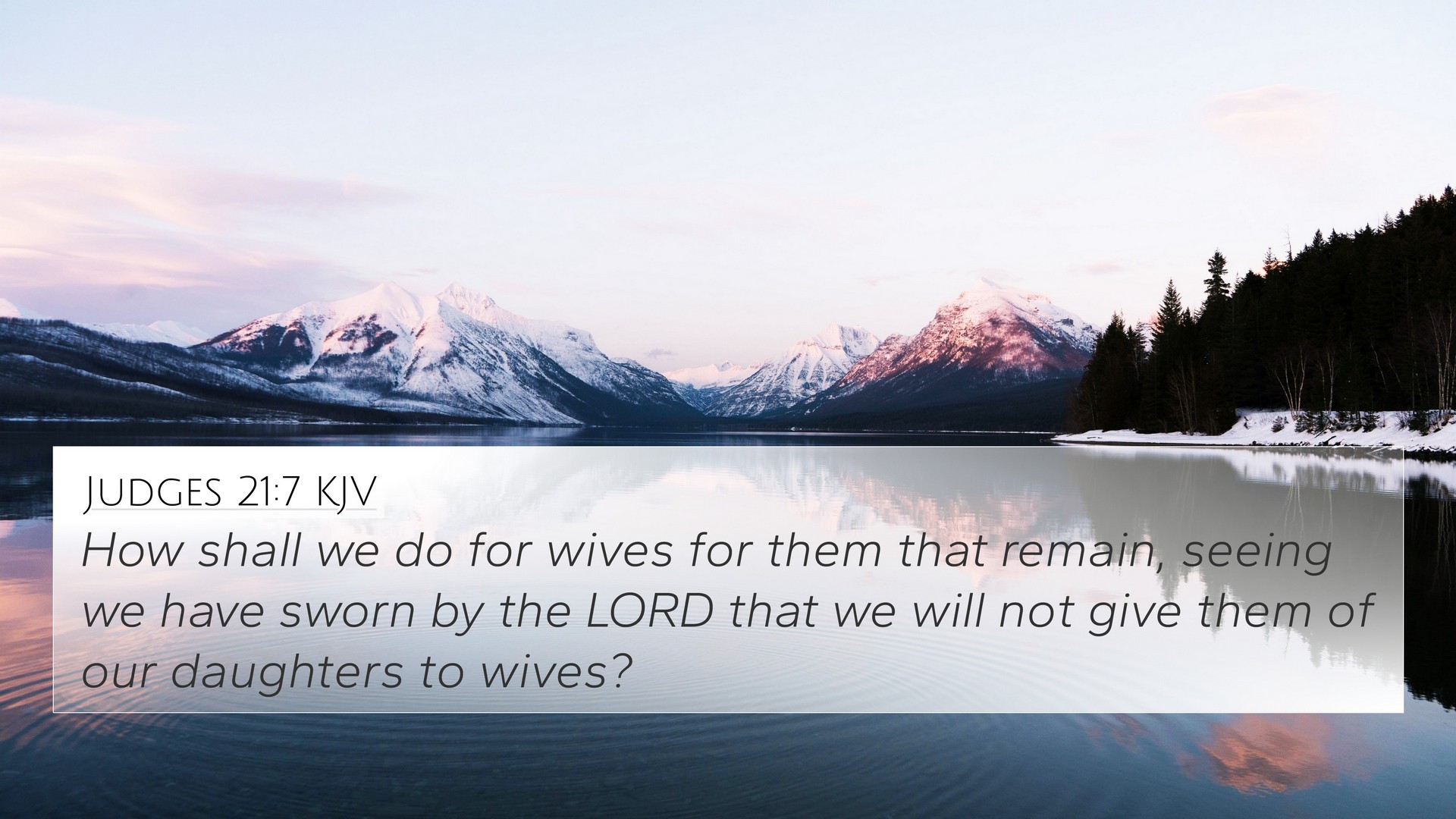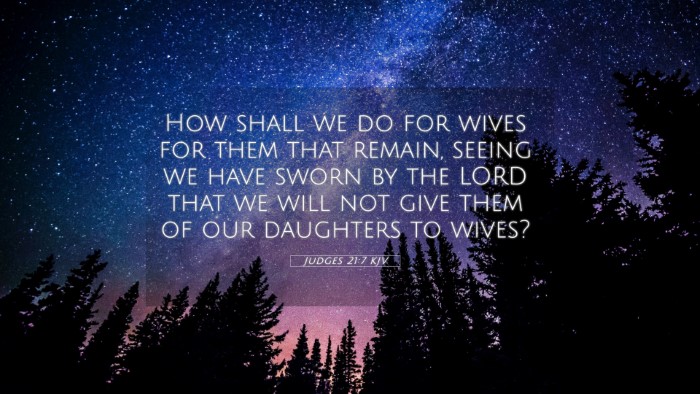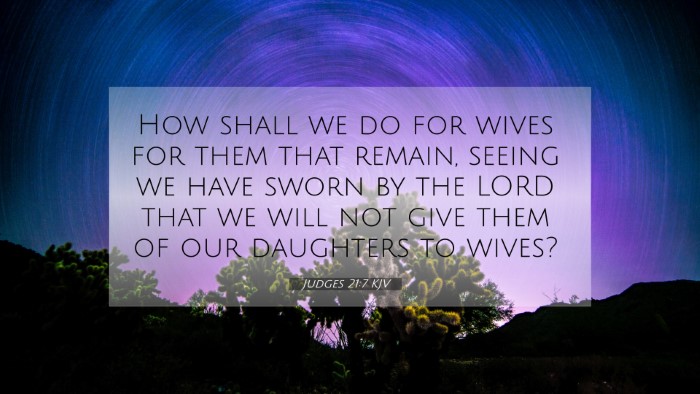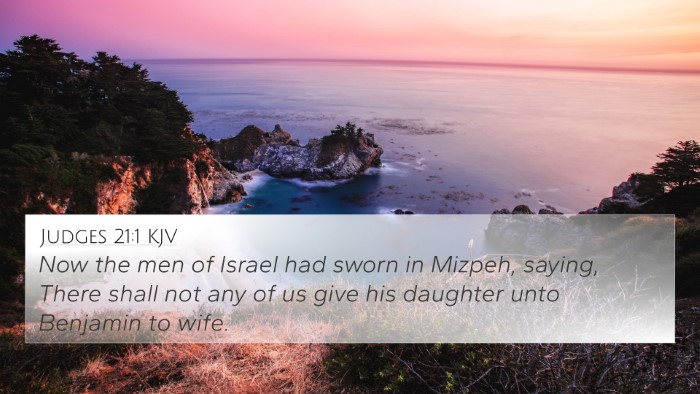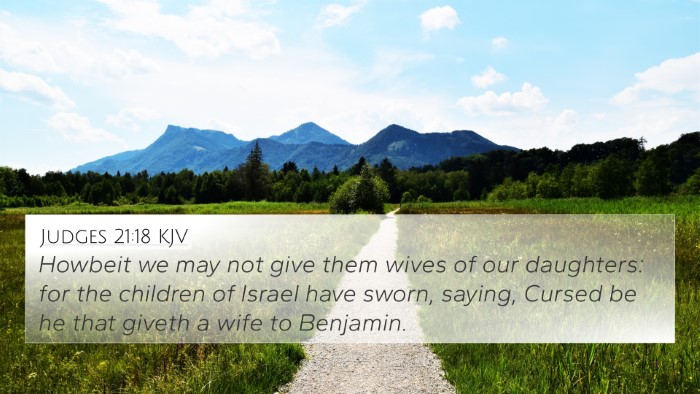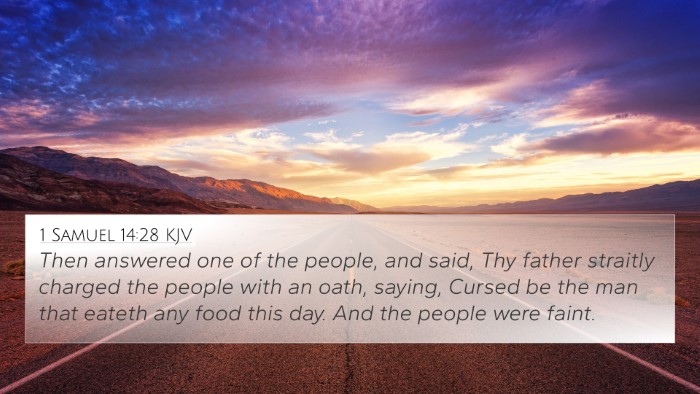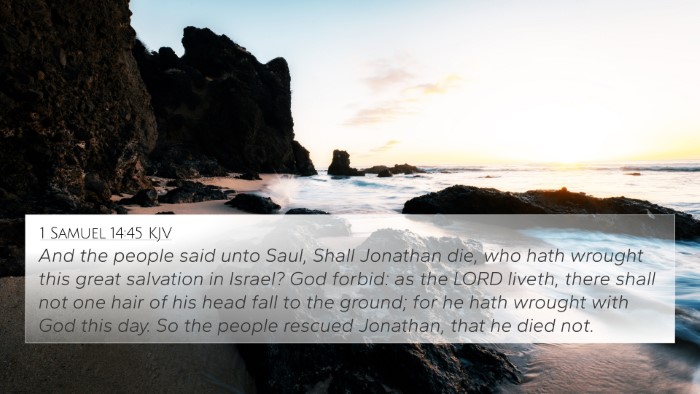Understanding Judges 21:7
Judges 21:7 reads: “What shall we do for wives for those who remain, seeing we have sworn by the LORD that we will not give them any of our daughters as wives?” This verse occurs at a critical juncture in the Book of Judges, highlighting the moral dilemmas faced by the Israelites after the conflict with the tribe of Benjamin.
Contextual Analysis
In the preceding chapters, the Israelites faced a devastating civil war, necessitating difficult decisions concerning their remaining brethren. The narrative showcases the deep frustrations and ethical quandaries presented to the Israelite community after their vow, shedding light on their relationships and societal structure.
Key Themes
- Moral Dilemma: The Israelites are torn between their vow to God and the need to preserve their tribe.
- Community Responsibility: The verse reflects a collective concern for the future of the tribe of Benjamin.
- The Nature of Vows: It encapsulates the seriousness of pledges made before God, indicating their weight in decision-making.
Commentators' Insights
Matthew Henry observes that this plea for wives underscores the dire situation faced by the Benjamites and the consequences of their previous actions which led to near extinction. He emphasizes the importance of communal decision-making in the face of tragedy.
Albert Barnes highlights the irony of the situation, where a previous oath brings about a calamity. He points out that the gravity of the Israelite vows created a conflict, thus leading to a desperate request to find solutions.
Adam Clarke elaborates on the potential influence of divine providence in these circumstances. He suggests that the obligation to fulfill their vow must be balanced with compassion towards the tribe of Benjamin, reflecting on the deeper implications for family and covenantal relationships among the tribes of Israel.
Bible Cross-References
- Deuteronomy 23:21-23: Discusses the implications of making vows to the Lord.
- Judges 21:1: Illumines the initial problem of the Israelites’ oath regarding their daughters.
- Numbers 30:2: Establishes principles regarding vows and the consequences of breaking them.
- 1 Samuel 1:11: Explores similar themes of vows and their sacredness.
- Genesis 34:11-16: Describes familial obligations and inter-tribal relationships.
- Joshua 9:15: The seriousness of oaths made in haste and their long-term impacts.
- 2 Corinthians 1:17: Reflects on the importance of integrity in promises.
Connecting Biblical Texts
The plea in Judges 21:7 can be seen as part of a larger narrative regarding the tension between divine commandments and human actions. It bridges the themes found throughout the historical books of the Old Testament, leading into reflections present in the New Testament where the weight of one's word is echoed (cf. Matthew 5:33-37).
Conclusion
This verse serves as a potent reminder of the complexities inherent in upholding personal vows amidst communal obligations. It prompts readers to reflect on the connections between divine commands and the ethical considerations that arise in their fulfillment. As we analyze Judges 21:7, the insights from cross-referencing with other biblical texts enrich our understanding of family, societal duties, and the grave nature of vows.
Further Study Tools
For those seeking deeper understanding and cross-referencing materials, consider utilizing a Bible concordance which can assist in identifying connections between verses. Additionally, employing a Bible cross-reference guide can enhance your study, providing comprehensive insights into related scriptures.
How to Use Bible Cross-References
Understanding cross-referencing Biblical texts allows for a more enriched study experience. Engaging with tools for Bible cross-referencing can illuminate how different scriptures interact thematically, enabling deeper insights into God's word.
